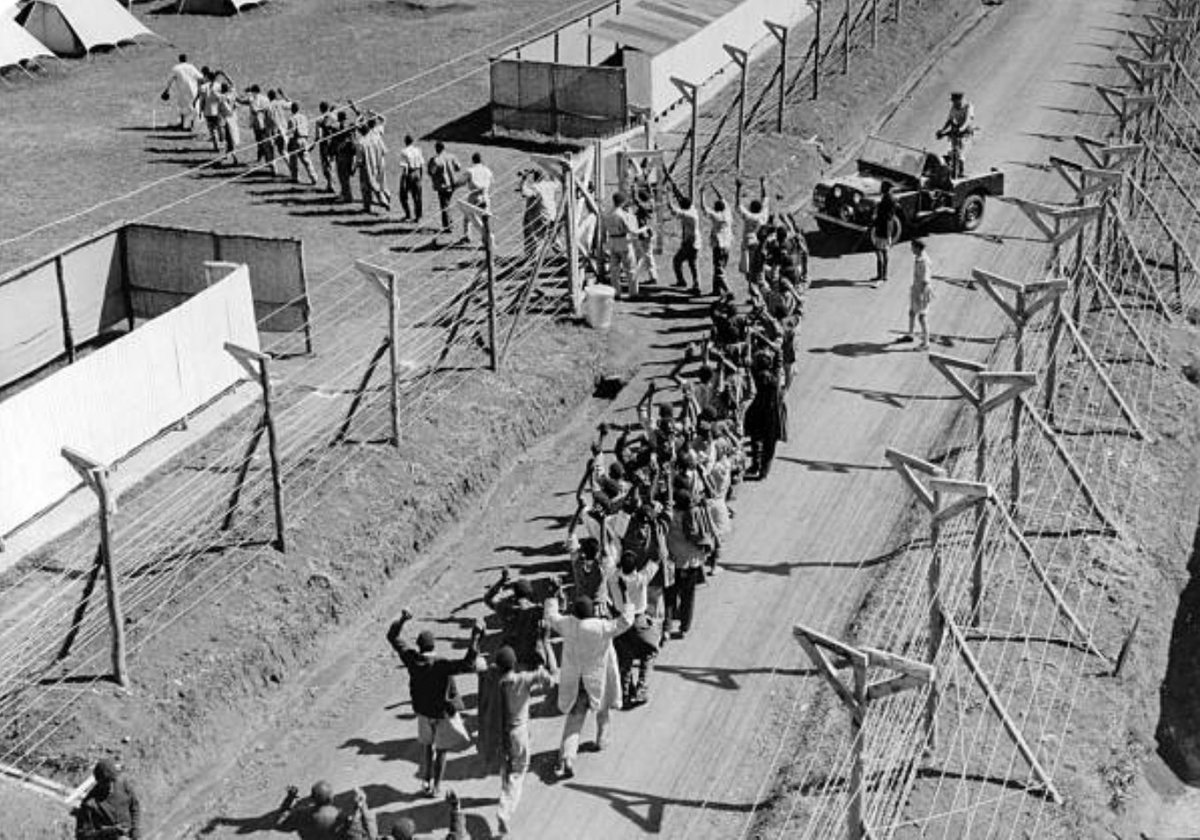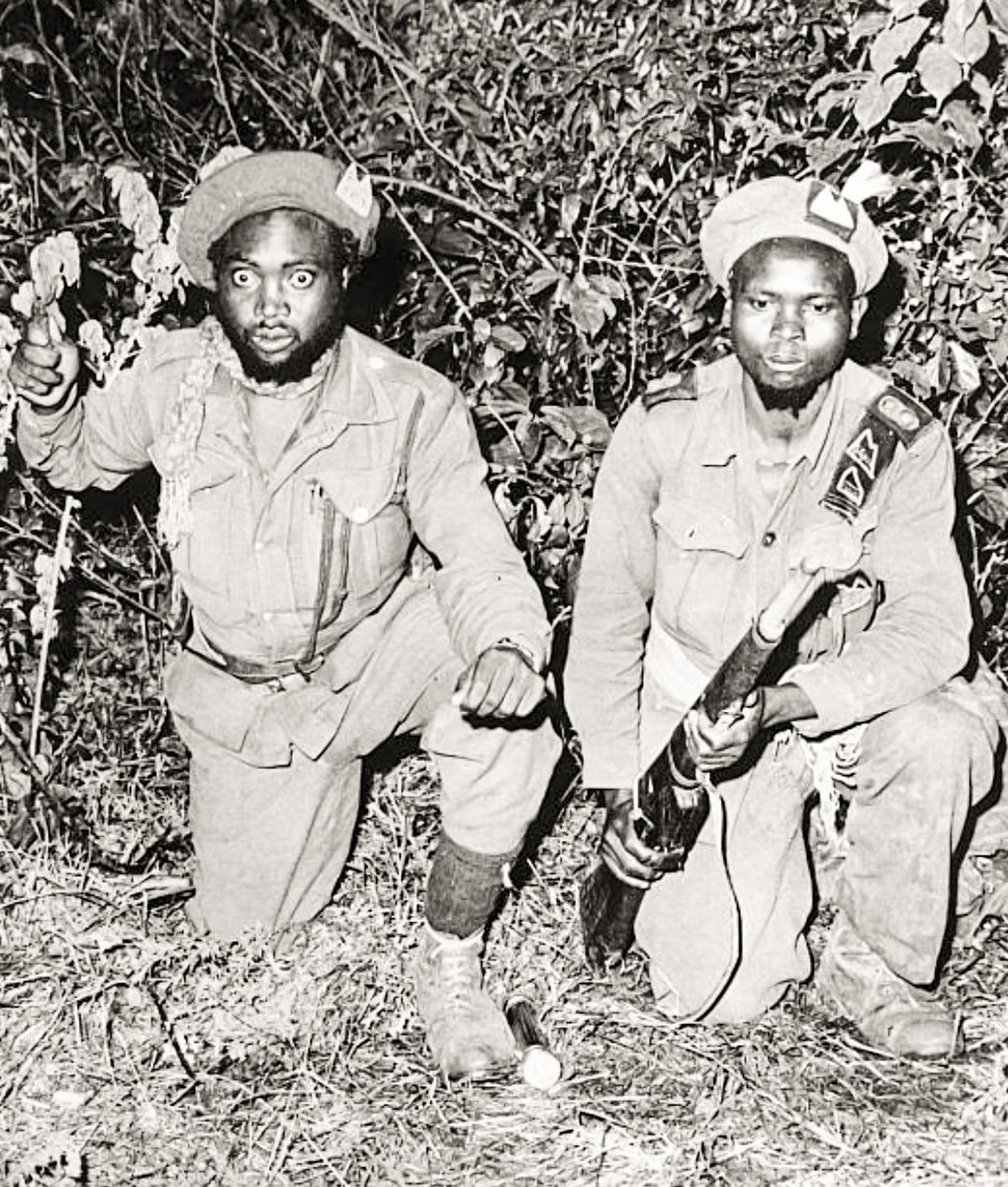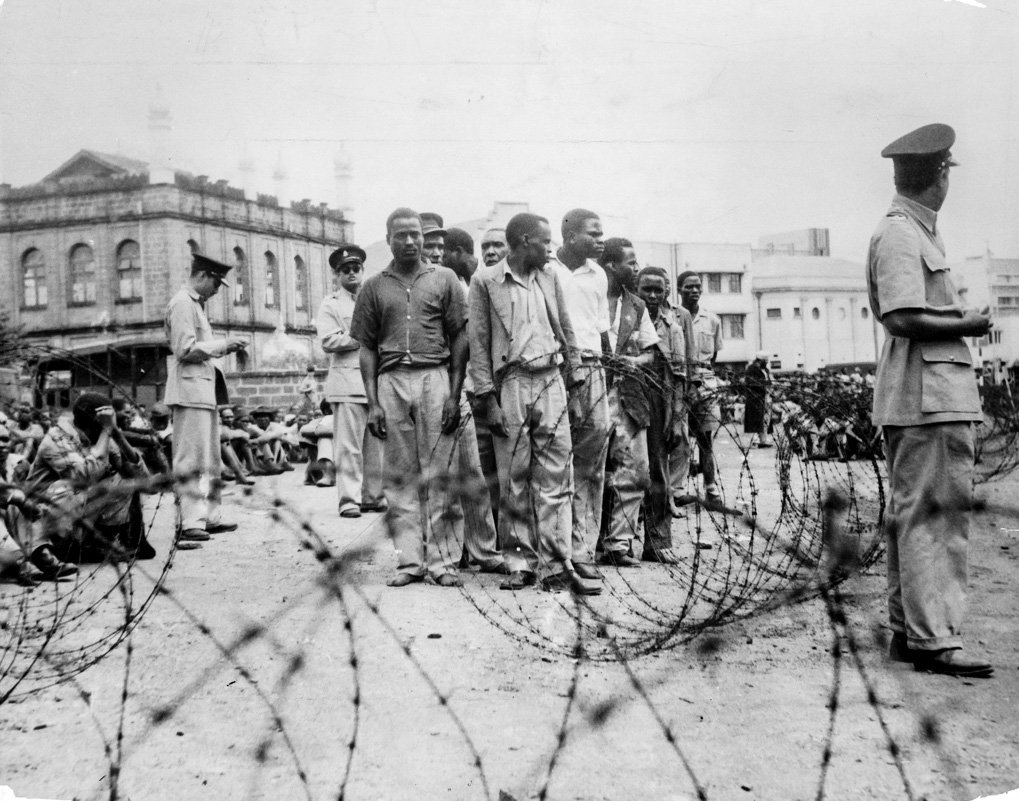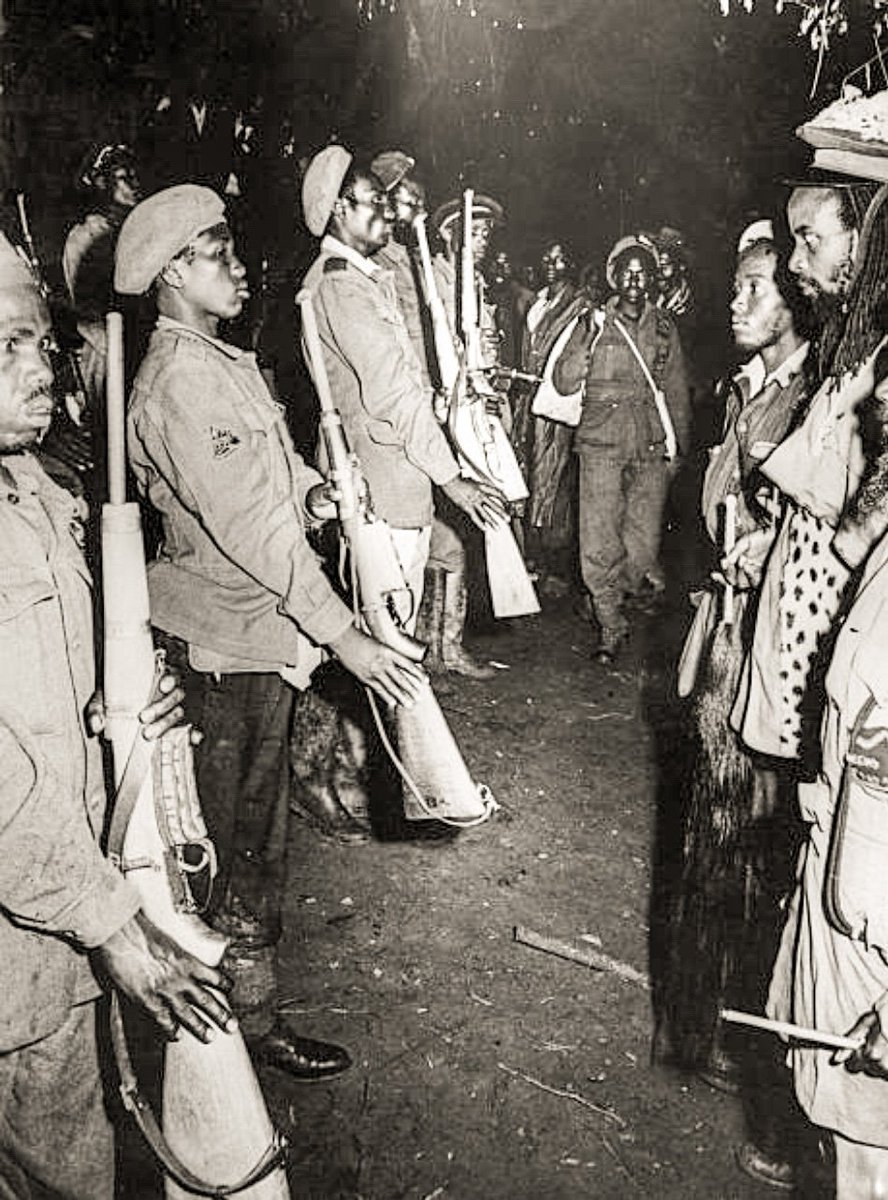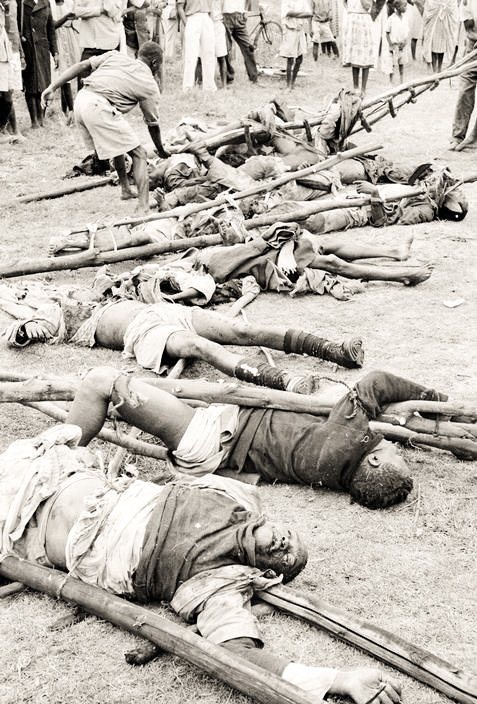1/ #HistoryKeThread: Part of the reason the colonial government found it hard to tackle Mau Mau was because oathing ceremonies took place in utmost secrecy.
2/ This is an account given by a senior citizen on the oath he undertook at the height of the emergency. He was only 15 when he took the ‘muuma’. Excerpts:
3/ “One morning I was informed by my uncle, an oath administrator who had also seen action in Burma as a member of the British KAR, that he and some wazee wished to talk to me about something after sunset, and that he would send someone for me.
4/ Perhaps to conceal the subject matter of the upcoming ‘talks’, my great uncle asked me how I was faring on the farm.
5/ Being a mûgîkûyû who had already undergone the cut, I was an ideal candidate for oathing.
6/ So that night, a man called on my thingira (hut) and his unfamiliar voice asked me to step out. ‘As your baba mûnini (uncle) informed you, I will be going with you somewhere tonight so I need you to prepare now’, he said softly.
7/ Moments later, we set off, walking in the indiscernible dark for hours, occasionally having to cross several rivers up and down hilly ridges. In spite of my familiarity with the terrain, I could not, after about 30 minutes, tell where we were. I had lost bearing of the...
8/ ...direction from which we came, and knew nothing of where we were headed, except that I was being escorted to a location for ‘talks’.
9/ Two hours later, we reached what looked like a lone thatched house on the edge of a forest. I could immediately tell that there were people inside. A man, torch in hand, quickly stepped out to meet us. I was ushered in. The man who had escorted me to this location quietly...
10/ ...melted away into the darkness.
11/ Inside the pitch dark hut, I was made to sit down on the floor, against the rotary wall. Thanks to the bit of moonlight filtering through two small open windows, I could make out that there were others seated along the edge of the wall. But everyone was quiet.
12/ Huddled in one corner were a sprinkling of older men, some of whom I noticed had dreadlocked hair. My heart sank. These were Mau Mau, freedom fighter legends that nobody in the village dared talk about in the open.
13/ I squinted hard in the darkness to try and see whether my uncle was present. I could neither tell nor recognize anyone in the hut. It appears embers in the middle of the hut had been purposefully kept at a minimum so identities could be concealed.
14/ It dawned on me that I had been brought to be oathed or, if you like, to receive "muuma".
15/ After two or three other young men arrived and were ushered in, an authoritative voice thundered out softly from the dark to each of the young men gathered to introduce themselves.
16/ I recall that the first young man, while introducing himself, volunteered his full name, including the English one. But even before he could finish off, an object was violently thrown in his direction.
17/ ‘I will cut off the tongue of anyone who introduces himself using a name other than that which is of the Agïküyü’, the now familiar voice of the leader warned.
18/ Then the first initiate repeated his names in the way Agïküyü traditionally used to introduce each other, the father& #39;s name cited last, e.g. Mûchiri wa Maina (Mûchiri, son of Maina).
19/ During the opening episodes inside the hut, the men spoke firmly but in low tones, interrupted only by the occasional chorus of acknowledgement from the initiates, if not by the din of the constant roar of a nearby river.
20/ After the opening pleasantries, the Mau Mau leaders took turns to explain to us why the white man had to be fought, and why collaboration with the colonial administration was unacceptable. The community had to be bound into the common cause of fighting for their freedom at...
21/ ...the expense of Agikuyu blood....blah...blah...blah.....
22/ Each of us was later given a weapon. It was either a simi or massive knife. We were bound that if called upon to undertake a mission, however dangerous, even if involving traitors drawn from our own families, we were expected to execute it.
23/ Later, in the dead of night, each of us left in the direction from which we had arrived. The same mysterious man was on standby to take me back home - again, furtively, without so much of a conversation. In the ridges and forests of central Kenya, conversations in the...
24/ ...night could be picked out from far off. Discreetness in speech was an ally.
25/ Indeed, when Mau Mau left the forests after Kenya had attained independence, villagers were stupefied to learn that the voice boxes of some of the fighters had lost their functionality and, out of adaptation, turned vestigial. The fighters were unable to speak normally and...
27/ Back to the oathing - the oath that I underwent was known as "muuma wa küigwithania" and was the mildest of all and served to bind a person to the causes of the movement.
28/ I cannot volunteer finer details of what transpired. But the oath was not complete until each of us initiates repeated a citation read to us. I was made to swear that:
29/ The initiate was required to swear using the following words:
30/ I will not give away secrets of the Society.
31/ I will not help the government apprehend members of the Society.
32/ I will not sell our land to strangers.
33/ I will help the Society when called upon to do so with funds.
34/ I will, if called upon to do so, render any help to members of the Society.....”
35/ <end of narration>
36/ So effective was the oath-taking mobilization that by 1952, the onset of the State of Emergency, it was estimated that 90 percent of the Agîkûyû youth in Central province, Nairobi and the Rift Valley had taken this oath.
37/ Captured Mau Mau tortured to reveal the identities of who administered the oath to them could not. Everything used to happen in the dark, at unknown locations, by unknown men. Everyone knew, and had perhaps witnessed, what happened if one broke the oath.

 Read on Twitter
Read on Twitter